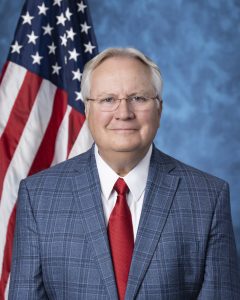
Across this nation, nearly 8 million high school students are currently participating in athletics, and nearly half a million college students compete as National Collegiate Athletic Association (NCAA) athletes. Last year, the NCAA surveyed 9,800 student athletes and found these athletes are reporting higher-than-average levels of mental health issues. Even worse, a third of those who took the survey said they did not know where to find mental health services on their college campus, and less than half said they were comfortable even seeking mental health services. This is a very serious problem.
Suicide is the third leading cause of death for folks between the ages of 15-24, and this disturbing trend is especially impacting our student athletes. Student athletes, especially those competing at the highest levels, are experiencing mental health issues including overwhelming stress, eating disorders, burnout, depression, and anxiety. These crises can lead to suicidal thoughts or even suicide if left untreated.
Mental health stigma is a big factor in preventing student athletes from seeking help, so that’s why it’s so important we all come together to destigmatize seeking help when needed. A first step is recognizing unique stressors including expectations to perform and achieve great things in sports, and this is all on top of managing academic work.
There’s a lot of work to be done, and I’m proud to work in a bipartisan fashion to address student athlete mental health. This week, Rep. David Trone (D-MD) and I are introducing a resolution expressing support for a “National Student Athlete Mental Health Day.” This day coincides with Mental Illness Awareness Week, which began this past Sunday and ends on Saturday, October 8.
The goal of this day is to bring national attention to the unique mental health experience of our nation’s student athletes. We want to encourage colleges, universities, and their athletic departments to participate by addressing the stigma and drawing attention to resources for student athletes. We also want to encourage athletic directors to include mental health resources for student athletes as well as best practices for suicide prevention. Finally, we are asking the President to issue a proclamation calling on the people of the United States to observe National Student Athlete Mental Health Day with appropriate awareness and educational activities.
I’m proud to work across the aisle on this effort, and I truly believe we can make a difference and get our student athletes the help they desperately need.
